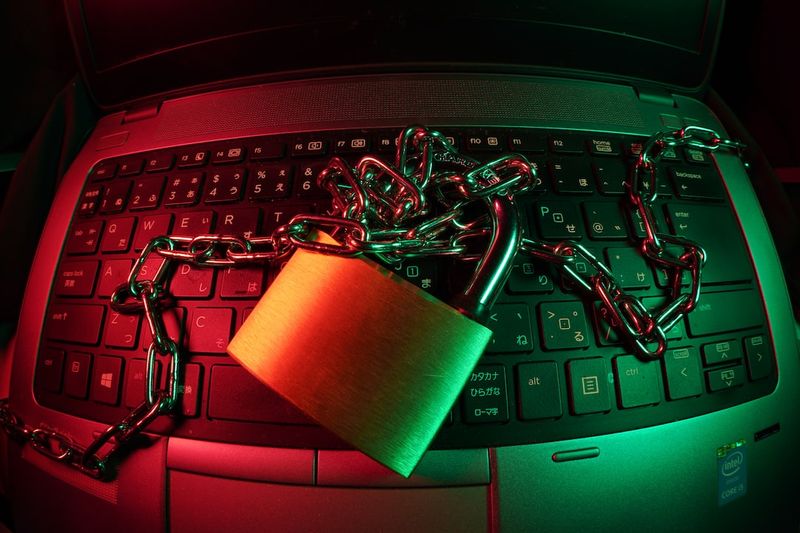Major Malware Network Seized in Multi-National Operation
In a significant blow to global cybercrime, the FBI and its European partners have infiltrated and seized control of a major malware network that has been operating for more than 15 years. This network, known as Qakbot, has been used to commit a wide range of online crimes, including destructive ransomware attacks. The authorities were able to remotely remove the malicious software agent and have taken down the network, effectively cutting off the criminals from their victims.
Qakbot: A Long-Standing Threat
Qakbot, also known as Pinkslipbot and Qbot, is a malware loader that has caused significant damage since it first appeared in 2008. Primarily spread through phishing emails, Qakbot gave hackers initial access to compromised computers, enabling them to carry out various malicious activities. These activities included deploying ransomware, stealing sensitive information, conducting tech support scams, and executing romance scams.
The scale of Qakbot’s operation is truly staggering. It has affected millions of individuals in nearly every country around the world. This malware has particularly targeted corporate networks, accounting for approximately 30% of global cyber attacks in the first half of 2023. The impact of Qakbot has been wide-ranging, affecting sectors such as engineering, finance, defense, and food distribution.
A Collaborative Operation
The operation to dismantle the Qakbot network, code-named “Duck Hunt,” involved the FBI, Europol, and several law enforcement agencies across Europe, including France, the United Kingdom, Germany, the Netherlands, Romania, and Latvia. These agencies successfully seized more than 50 Qakbot servers and identified over 700,000 infected computers, with more than 200,000 of them located in the United States. By taking control of the network infrastructure, the authorities were able to remotely remove the malware from thousands of infected machines.
The Short-Term Disruption and Ongoing Threat
The takedown of the Qakbot network is undoubtedly a significant achievement and demonstrates the power of international cooperation in combating cybercrime. However, experts warn that this victory may be temporary. While the operation will likely lead to a temporary decline in ransomware attacks associated with Qakbot, cybercriminals are expected to adapt and either rebuild the infrastructure or migrate to other botnets.
As Chester Wisniewski, a cybersecurity expert at Sophos, points out, “This will cause a lot of disruption to some gangs in the short term, but it will do nothing to prevent it from being rebooted.” The criminal ecosystem is resilient and constantly evolving. It is crucial for law enforcement agencies and cybersecurity professionals to remain vigilant and proactive in their efforts to combat cybercrime.
Editorial: Stepping Up the Fight Against Cybercrime
The seizure of the Qakbot network emphasizes the need for continued international collaboration in the fight against cybercrime. This operation serves as a reminder of the ever-present threat posed by cybercriminals and the importance of proactive measures to counter their activities.
Cyberattacks have become increasingly sophisticated and widespread, targeting individuals, businesses, and governments alike. The financial and reputational costs of such attacks are enormous, and they can disrupt critical infrastructure and impact the lives of millions of people.
A Multi-Faceted Approach
Combating cybercrime requires a multi-faceted approach, encompassing technological advancements, legislative measures, and international cooperation. It is essential to invest in robust cybersecurity measures, including regularly updating software, implementing strong passwords, and educating individuals on cyber hygiene. Furthermore, governments and law enforcement agencies must collaborate on a global scale to identify, apprehend, and prosecute cybercriminals.
The successful takedown of the Qakbot network is a testament to the power of international partnerships. By sharing intelligence, pooling resources, and coordinating efforts, law enforcement agencies can disrupt cybercriminal networks and protect potential victims.
The Ongoing Challenge
However, it is essential to recognize that cybercrime is an ever-evolving threat. Criminals constantly find new ways to exploit vulnerabilities, develop sophisticated malware, and evade capture. Therefore, the fight against cybercrime must be an ongoing endeavor, with continuous innovation and adaptation to stay one step ahead of the criminals.
Cybersecurity experts and law enforcement agencies must collaborate closely to anticipate emerging threats, share best practices, and develop cutting-edge technologies to detect and neutralize cyber attacks effectively.
Individual and Organizational Responsibility
While law enforcement agencies and cybersecurity experts have a crucial role to play, individuals and organizations must also take responsibility for their own cybersecurity. This includes adopting best practices, being vigilant against phishing attempts, and reporting any suspicious activities.
Furthermore, organizations must invest in robust cybersecurity measures, including regular risk assessments, employee training, and incident response plans. By prioritizing cybersecurity, businesses can protect themselves and contribute to the collective effort against cybercrime.
Conclusion
The seizure of the Qakbot network is undoubtedly a significant development in the fight against cybercrime. It underscores the importance of international collaboration and serves as a reminder of the ongoing threat posed by cybercriminals. While this operation will disrupt criminal activities in the short term, it is crucial for law enforcement agencies, cybersecurity professionals, and individuals to remain proactive and vigilant in the face of ever-evolving cyber threats.

<< photo by Petter Lagson >>
The image is for illustrative purposes only and does not depict the actual situation.
You might want to read !
- FBI’s Triumph: Liberating 700,000 Computers and Seizing $8.6 Million from QakBot Malware
- The Rise and Fall of Operation Duck Hunt
- The Illusive Art of China’s Meta Influence Op
- 6 Ways AI Can Transform Digital Forensics in the Modern Age
- Unveiling the African Cybercrime Network: Law Enforcement Takes Down Operations
- The Fall of EncroChat: How a Major Criminal Bust Led to Thousands of Arrests and Millions Seized
- Law Enforcement Cracks Down on LockBit Ransomware Ring, Unveiling $91M Extortion Streak
- Unpatched Citrix NetScaler Devices: A New Playfield for Ransomware Group FIN8
- Unprotected Citrix NetScaler Devices Under Attack by Ransomware Group FIN8




